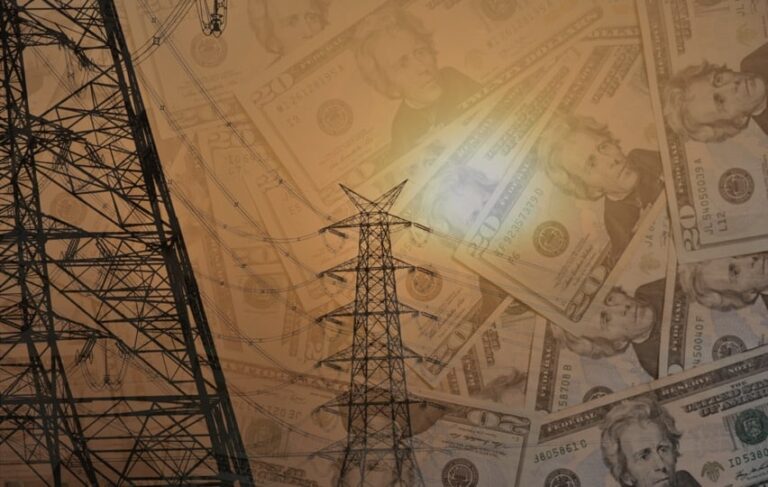Insider Emails: Polluter Lobbyists Behind Clean Energy Standards Freeze in Ohio
Insider emails confirm the undue influence of polluter lobbyists and special interest groups over the controversial Energy Mandates Study Committee report that recommended an extension of the freeze on clean energy standards in Ohio.
The Ohio House of Representatives and Senate just acted on the report’s recommendation and passed a bill – HB 554 – that will effectively continue the freeze unless it is vetoed by Governor John Kasich.
The emails were obtained from state legislators by the Energy and Policy Institute via a public information request, and were not available publicly before now.
Industry groups influenced the Energy Mandates Study Committee report
In one August 18, 2015 email addressed to several Republican state policymakers and 10 industry lobbyists, Ohio Senator Bill Seitz suggested that “we should be meeting as a small group to figure out what that report is going to say.” The following month, the Energy Mandates Study Committee that Seitz referenced in his email issued a contentious report that recommended extending the freeze on Ohio’s clean energy standards indefinitely.
Seitz’s email went to lobbyists for American Electric Power, Dayton Power & Light, Duke Energy, and FirstEnergy, as well to Samuel Randazzo, a lobbyist for the Industrial Energy Users of Ohio and anti-wind attorney.
Seitz also sent an email to some of the same lobbyists asking for their opinion on which parts of a bill to roll back Michigan’s clean energy standards they could emulate in Ohio. He got the bill number wrong, but Randazzo responded, “… if getting rid of portfolio mandates is a ‘good idea’ there there is a much easier way to get rid of the mandates.”
The emails also show that a Ryan Gentil, a lobbyist for Duke Energy, was scheduled to meet with Senator Troy Balderson, co-chair of the Energy Mandates Study Committee, just over two weeks before the committee’s final report was released. Gentil requested the meeting with Senator Balderson “to discuss with him Duke’s position on the EMSC.”
Signs of industry influence on the contents of the Energy Mandates Study Committee report
In an earlier email, Balderson’s legislative aide provided Gentil with a copy of a deeply flawed and biased study by Strata Policy and the Institute for Political Economy at Utah State University, both of which have funded by the Koch brothers. Gentil received the report before its author, Ryan Yonk, testified publicly before the Energy Mandates Study Committee. The study’s over the top claims about the economic impact of Ohio’s clean energy standards featured heavily in the committee’s final report.
Senator Seitz requested feedback from lobbyists on a report by the American Council for an Energy Efficient Economy’s (ACEEE’s) that showed the money saving benefits of Ohio’s energy efficiency standards. Randazzo responded and described ACEEE’s report as “garbage.” ACEEE’s report was excluded from the Energy Mandates Study Committee’s report.
Senator Seitz also looked to include disinformation from fossil fuel funded special interest groups in the report. In one email to his cohort of lobbyists, Seitz endorsed a report attacking the Environmental Protection Agency’s Clean Power Plan by the Institute for Energy Research, which received significant funding from the Koch network in 2015. In another email, Seitz said that “carbon dioxide is not a factor in asthma – or even in ‘clean air.’”
In reality, carbon dioxide is of course a factor in climate change, and higher temperatures can lead to higher ozone pollution and pollen levels that trigger more asthma attacks.
In the end, the Energy Mandates Study Committee report greatly exaggerated the costs and ignored the benefits of meeting Ohio’s clean energy standards. In 2016, two members of the committee, Senator Seitz and Representative Ron Amstutz, introduced companion bills – SB 320 and HB 554 – to extend the clean energy freeze.
Beyond the clean energy freeze
On June 30, 2015, a top lobbyist for Duke Energy reached out to several key state legislators to request a meeting about the emerging issue of “re-regulation” of Ohio’s electricity markets. The email’s recipients included Ohio House Speaker Cliff Rosenberger, Senator Seitz, and Representative Ron Amstutz.
The Ohio House and Senate could take up the issue of re-regulation in 2017.
Meanwhile, Governor Kasich has an opportunity to show that Ohio’s energy policy is not for sale to utility lobbyists by vetoing HB 554 and unfreezing clean energy in the Buckeye State.
A previous public records request that was published by EPI in 2015 details how Senator Seitz has worked with polluter lobbyists dating back to at least 2013. The emails are available here.



